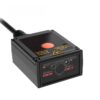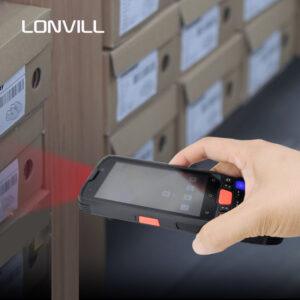Dans les paysages industriels contemporains, Les scanners de code-barres sont devenus des instruments indispensables. Si cela supervise les entrepôts, Optimisation des workflows de production, ou bien – réglage de la logistique, the appropriate industrial barcode scanner can substantially elevate efficiency. Given the plethora of options available in the market, it can be quite perplexing to know where to begin. Here are some crucial factors to take into account when making a scanner selection:
Comprehend Your Application Scenario
First and foremost, precisely define where and how you intend to utilize the barcode scanner. Different industrial milieus have distinct requirements. For example, warehouses frequently require wireless scanners that are capable of long – range scanning and have substantial storage capacity. On the contrary, production lines are more apt for fixed scanners equipped with automatic sensing capabilities. Grasping your specific requirements is the initial step in the quest for the right scanner.
Evaluate Scanning Efficiency
Scanning efficiency is a vital aspect to weigh, covering elements such as scanning speed, précision, and the range of barcodes the scanner can decipher. For instance, if you require a high – speed scanner that can read 1D barcodes, 2D barcodes, and even DPM (Direct Part Mark) codes, our A65 series is an outstanding option.
Assess Durability
Industrial settings are often unforgiving, so durability is of utmost importance. Examine the materials used in the scanner’s construction, like ABS+TPU, and verify its protection rating (such as IP65 or higher). These characteristics will assist you in determining whether the scanner can endure impacts and is resistant to water and dust. A durable scanner will have a longer service life, cutting down on the frequency of replacements.
Examine Communication Features
Mobility is often a key consideration in large warehouses or manufacturing plants. Ensure that the wireless scanner you’re eyeing supports long – distance communication, such as 2.4G wireless technology, and check its maximum communication range. De plus, take battery life into account. For tasks that demand extended usage, a scanner with a long – lasting battery is essential to prevent frequent recharging.
Consider Compatibility and Expandability
Compatibility with various operating systems (such as Windows, Linux, Macos, Androïde) is significant, as it enables seamless integration without the need for additional drivers. En plus, consider scanners with multiple expansion ports (like USB, RS232, Ethernet, PS/2), which can connect to a wide variety of devices and systems.
Value After – Sales Service and Support
Reliable after – sales service and technical support are indispensable. During the installation and operation of the scanner, you may encounter various problems. Having dependable support can help you resolve these issues promptly, ensuring that your scanner continues to function effectively and minimizing downtime.
Conclusion
Selecting the appropriate industrial barcode scanner may appear to be a daunting task, but by taking into consideration the above – mentioned points, you can surely find the scanner that best suits your needs and enhances your productivity. If you have any barcode scanning requirements, don’t hesitate to reach out to us; we’ll be more than happy to assist you.








Laisser une réponse